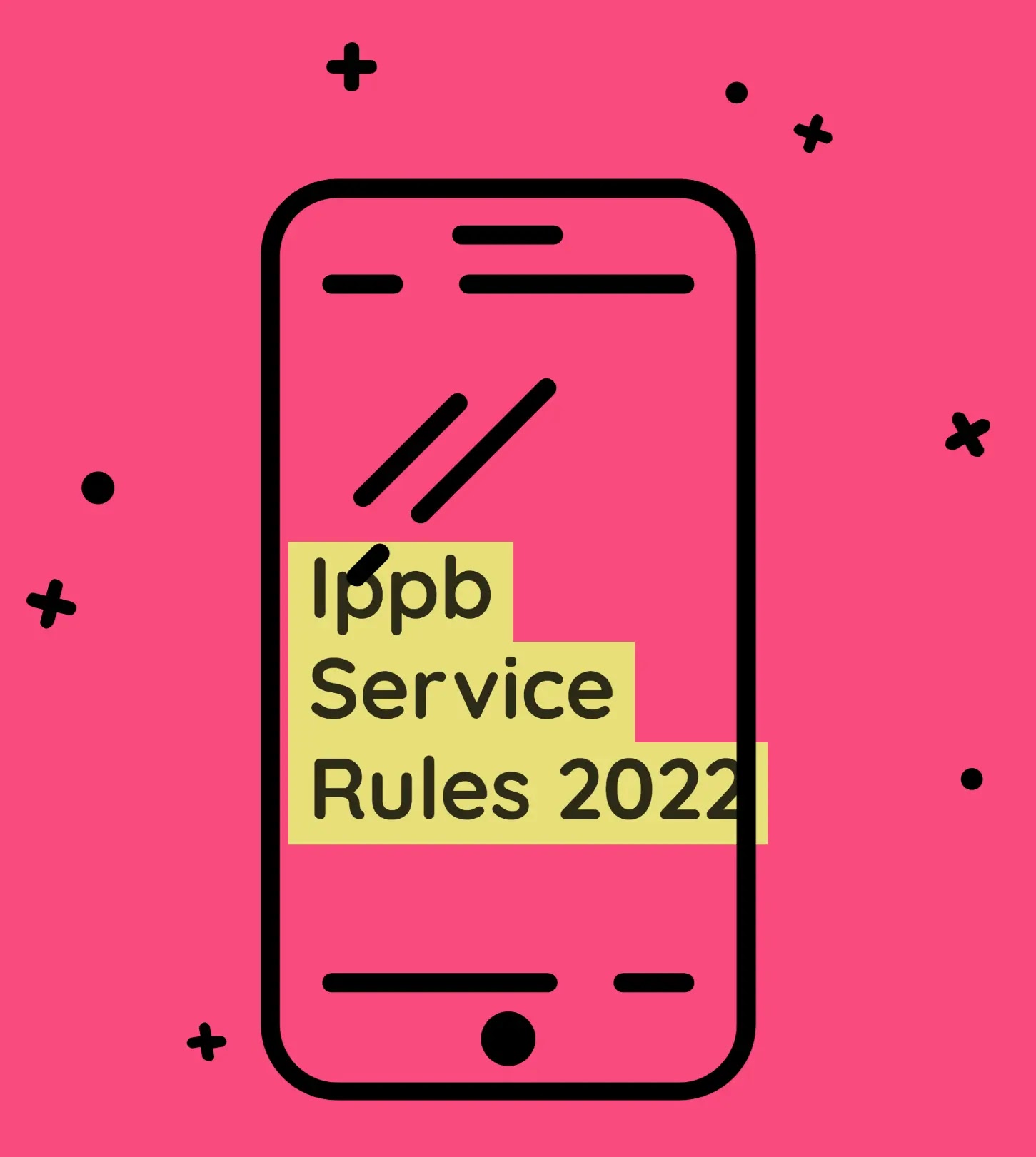Revised IPPB Service Rules | IPPB Employees Pay Scale, Allowances,Leave, Travel Expenses & Terminal Benefits 2022
Revised IPPB Service Rules. IPPB Approved the Revised Service Rules for its employees on 13.05.2022. Detailed Service Rules of IPPB Employees is mentioned below.
1 Applicability 4
2 Definitions 4
3 Grade Structure & scale of pay 5
4 Increments 6
5 Pay Fixation 7
6 Probation & Confirmation 7
7 Training 8
8 Seniority 8
9 Age of retirement 9
10 Termination of service 10
11 Allowances 11
12 Performance Pay 14
13 Hospitalization Expenses 14
14 Medical check-up scheme 15
15 Group Personal Accident Insurance 16
16 Terminal Benefits 16
17 Loan for the purchase of Conveyance 18
18 Loan for purchase of houses 18
19 Leave 18
20 Reimbursement of Expenses on Travel 22
21 Transferability 25
22 Other Guidelines 26
23 Power to interpret rules 26
24 Power to modify/Alter Rules 26
1. Applicability
1.1. These rules shall apply to all Officers on the permanent rolls of the IPPB only. This will also include
Officers on Probation appointed against permanent posts.
1.2. Officers appointed/ engaged on contract shall be governed as per the terms and condition
mentioned in the contract with IPPB.
1.3. Officers on deputation/ lien to the Bank shall be governed as per the terms of their deputation/ lien to IPPB.
2. Definitions
2.1. In these rules, unless there is anything repugnant to the subject or context:
2.1.1. "Bank" means India Post Payments Bank;
2.1.2. "Board" means the Board of the Bank;
2.1.3. "Competent Authority" means the authority who is empowered by the Management of the Bank by an order to discharge functions or use the powers specified in the rule or order;
2.1.4. "Emoluments" means the basic pay, stagnation increment, dearness allowance, fixed personal pay and special allowance;
2.1.5. "Government" means the Government of India;
2.1.6. "Managing Director" means the CEO/ Managing Director of the Bank;
2.1.7. “Management” means the Board and the CEO/ Managing Director and includes such individuals or group of individuals as may be defined by the Board;
2.1.8. "Officer" means a person fitted into or promoted to or appointed to any of the grades specified in Clause 3 of the Service Rules;
2.1.9. "Pay" means basic pay including stagnation increments;
2.1.10. “Bipartite Settlement” means settlement signed between Indian Banks’ Association and All India Bank Officers’ Confederation for pay revision;
2.1.11. "Calendar year" means the period commencing from the 1st day of January of a year and ending on the 31st day of December of the same year;
2.1.12. “Performance pay” means annual payment made to an Officer based on the annual performance of the Bank and the performance of the Officer.
2.1.13. “Family” means Officer’s spouse, wholly dependent unmarried children (including step children and legally adopted children), wholly dependent physically and mentally challenged brother/ sister with 40% or more disability, widowed daughters and dependent divorced/ separated daughters, sisters including unmarried/ divorced/ abandoned or separated from husband/ widowed sisters and also parents ordinarily residing with and wholly dependent on the Officer;
2.1.14. The term wholly dependent family member shall mean such member of the family having a monthly income not exceeding ₹ 12,000/- pm. If the income of one of the parents exceeds ₹ 12,000/- pm or the aggregate income of both the parents exceeds ₹12,000/- pm, both the parents shall not be considered as wholly dependent on the Officer;
2.1.15. An employee may include his/her natural parents or parents – in – law under the definition of family, but not both, provided that the parents/parents – in – law are wholly dependent on him/her.
2.1.16. “Major ‘A’ category city” means cities/ places with population more than 45 lacs;
2.1.17. “‘A’ category city” means places with population over 12 lacs and below 45 lacs;
2.1.18. “‘B’ category city” means places with population over 5 lacs and below 12 lacs;











No comments